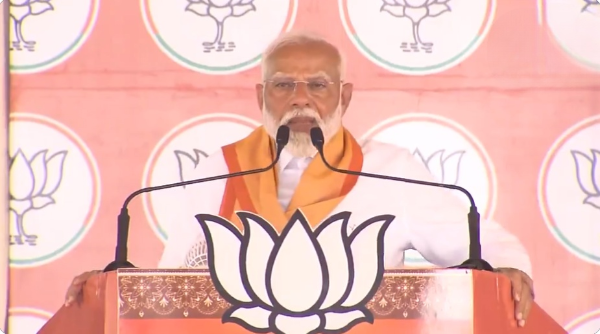During a spirited address at a public gathering in Haryana’s Bhiwani, Prime Minister Narendra Modi ignited controversy by accusing the West Bengal government of indiscriminately issuing Other Backward Classes (OBC) certificates to Muslims overnight, including to infiltrators. His remarks shed light on a contentious issue surrounding the validation of OBC certificates in the state.
PM Modi’s assertion, “In West Bengal, they have issued OBC certificates to Muslims overnight and that too to infiltrators. The High Court has invalidated all the OBC certificates issued to Muslims in the last 10-12 years,” drew swift reactions from various quarters, stirring the already charged political atmosphere in the state.
The Prime Minister’s remarks come amidst an ongoing legal battle over the legitimacy of OBC certificates, particularly those issued to Muslims, in West Bengal. His statement not only underscores the complexity of identity politics in the region but also raises concerns about the integrity of government documentation processes.
The accusation of issuing OBC certificates to infiltrators adds a new layer of complexity to the ongoing discourse on citizenship and identity politics in West Bengal. It brings into question the scrutiny and verification procedures employed in the issuance of such important documents.
While the West Bengal government is yet to respond to PM Modi’s allegations, the issue is expected to become a central point of contention in the political landscape of the state, especially with the upcoming elections looming on the horizon.
PM Modi’s remarks highlight the delicate interplay between identity, citizenship, and political representation in India’s diverse socio-cultural milieu. The controversy surrounding the issuance of OBC certificates in West Bengal underscores the need for transparent and accountable governance processes to address the concerns raised by such allegations.



